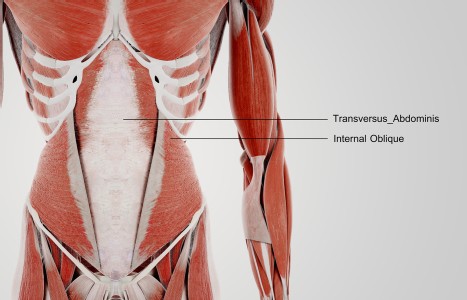TrA-2, my primary needle location, I needle 95% of the time and I think it works the best. You’ll know you have the right point location when you discover the muscle twitching when applying electric stimulation.
Ginger Root Effective against Pregnancy-Related Nausea and Vomiting
For hundreds of years, Asian cultures have used ginger for its culinary and medicinal properties. As a spice, it has been used to enhance the flavor of various foods and beverages. As an herbal remedy, ginger has been prized for its ability to relieve motion sickness; in fact, some studies have found that ginger works better than most prescription medications in alleviating the symptoms of this condition. Other studies have shown that ginger can ease the pain that accompanies sore throats, colds, migraine headaches and rheumatoid arthritis.
New research presented in a recent issue of Obstetrics and Gynecology suggests that ginger root can treat another common condition: nausea and vomiting during pregnancy. The research, conducted at Chiang Mai University in Thailand, found that pregnant women given ginger capsules experienced significant decreases in the occurrence and severity of nausea or vomiting episodes compared to those given a placebo.
Sixty-seven women, all no more than 17 weeks pregnant and with at least one incident of nausea during pregnancy, were assigned to either a placebo group or a ginger group. Women in the ginger group received a total of one gram of ginger per day, in the form of a 250-mg capsule taken three times daily after meals and once before bedtime, for four days. Women in the placebo group received identical-looking capsules at the same intervals. Both groups were asked to consume frequent small meals rich in carbohydrates but low in fat, and to not take any other medications.
At baseline, the women were asked to grade the severity of their nausea in the past 24 hours on a scale of 0-10, 10 being worst, as well as any instances of vomiting The women were asked to continue recording the severity of nausea twice daily the course of the study, and to document any episodes of vomiting at the end of each day. At a follow-up visit one week later, women from both groups were asked to rate any change in the severity of their symptoms to assess their response to treatment.
Ginger Patients Experience "Significant" Results
The average change in nausea scores was "significantly greater" for women in the ginger group compared to women given a placebo. By the fourth day of treatment, nausea scores had decreased by an average of 3.4 points in patients who received ginger. Those who received a placebo felt a decrease of only 1.5 points over the same time.
| Table I: Average decrease in nausea scores, ginger vs. placebo groups. | |||||
| Group | Day 0 - Day 1 | Day 0 - Day 2 | Day 0 - Day 3 | Day 0 - Day 4 | Day 0 - average days 1-4 |
| Placebo | 0.3 +/- 1.9 | 0.8 +/- 2.7 | 1.3 +/- 2.4 | 1.5 +/- 2.9 | 0.9 +/- 2.2 |
| Ginger | 0.9 +/- 2.1 | 1.5 +/- 2.1 | 2.6 +/- 2.5 | 3.4 +/- 2.5 | 2.1 +/- 1.9 |
Instances of vomiting were also "significantly less" in the ginger group. In the 24 hours before the start of treatment, all 32 women in the ginger group and 33 of 35 in the placebo group had experienced one or more episodes of vomiting. After four days of treatment, the proportion of those who had vomited in the ginger group (12 of 32, 37.5%) was much less than the placebo group (23 of 35, 65.7%).
At the one-week follow-up visit, an overwhelming majority of patients treated with ginger reported symptom improvement; 87.5% said their symptoms of nausea were either "better" or "much better." Less than 30% of women in the placebo group reported the same or similar improvements; more than 25% said their symptoms actually got worse.
| Table II: Nausea symptoms, assessed by five-item Likert scale. | ||
| Symptom rating | Placebo (n=35) | Ginger (n=32) |
| Much worse | 0 | 0 |
| Worse | 9 (27.5%) | 0 |
| Same | 16 (45.7%) | 4 (12.5%) |
| Better | 9 (25.7%) | 8 (25.0%) |
| Much better | 1 (2.9%) | 20 (62.5%) |
Adverse effects were relatively rare; five women in the placebo group and six in the ginger group experienced headaches during the study. In addition, one case each of abdominal discomfort, heartburn and diarrhea was noted in the ginger group. The researchers considered these side-effects "minor" and concluded that they "did not preclude" the women from continuing their treatment regimen. In addition, no significant differences were observed in term deliveries, spontaneous abortions or cesarean deliveries between groups, and there were no instances of any birth defects noted.
Quality, Freshness May Play Key Role
While the ginger used in the Chiang Mai study appeared to be an effective remedy for nausea and vomiting, it remains to be seen if the typical ginger supplement available at health food markets and other stores can produce the same benefits. To ensure the quality of the ginger in the study, the researchers explained that they used only fresh ginger roots, which were processed by a pharmacist who used good manufacturing standards. However, they did not perform any chemical tests to determine the exact composition or strength of the samples used.
"It is, therefore, not possible to directly compare our products with fresh ginger or the common powdered ginger in terms of potency or dosage," they wrote.
Admittedly, finding and preparing fresh ginger roots is not as easy as taking a standard ginger supplement. However, the active ingredients responsible for ginger's healing effects are still not clearly known. Furthermore, it has been suggested that factors such as storage conditions, exposure and automated processing may cause ginger products to lose some of their medicinal properties.
The results of this study, therefore, lead to two important conclusions. First, the research suggests that if taken in the right proportions, freshly harvested ginger root - not supplements or powders - can significantly reduce nausea and vomiting in pregnant women. Second, and perhaps more importantly, it is clear that more work needs to be done to determine the ingredients responsible for ginger's therapeutic actions; the proper dose needed to deliver the maximum effect without triggering an adverse reaction; and the role processing and postharvesting procedures may play on the effectiveness of ginger and other herbal remedies.
Reference
- Vutyavanich T, Kraisarin T, Ruangsri R. Ginger for nausea and vomiting in pregnancy: randomized, double-masked, placebo-controlled trial. Obstetrics & Gynecology 97(4):577-82.


